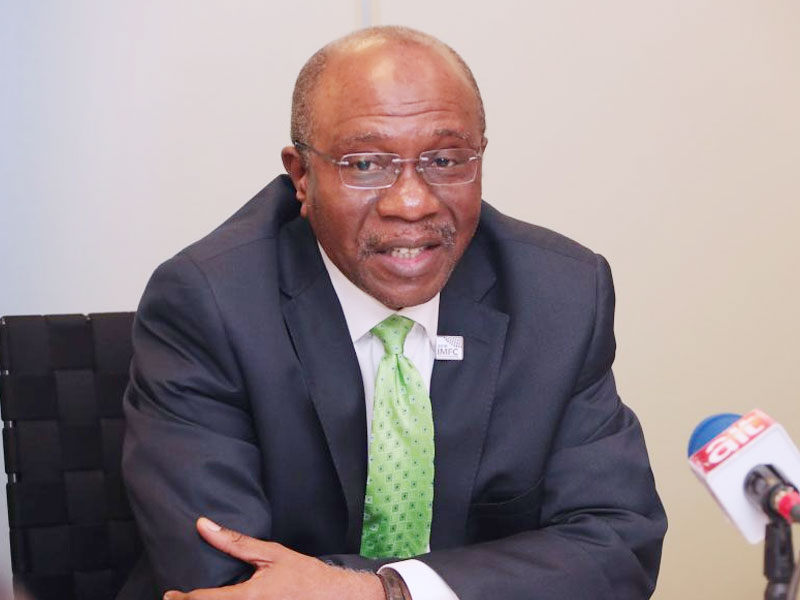The Central Bank of Nigeria (CBN) has revealed that Nigeria received $19.2 billion in total direct diaspora remittances between January and December of 2019. This was even as the CBN Governor, Godwin Emefiele, when he visited the Dangote Refinery over the weekend, said its fertiliser plant would stop importation of fertilizers and will generate a minimum of $750 million through export annually.
The latest data published by the apex regulator, however, stated that the remittances rose by 70.6 per cent when compared to $11.23 billion reported in 2018. The remittances are funds transferred from migrants to their home countries, and the breakdown of such funds by the CBN showed that $1.89 billion was remitted in January 2019, but increased to $1.92 billion in February 2019. According to the CBN, $1.12 billion and $1.56 billion was the total direct remittance between March and April 2019 respectively.
Total direct remittance hit $1.74 billion in May; $1.67 billion in June and $1.66 billion in July 2019. However, for August and September, the apex bank reported that $1.66 billion and $1.69 billion respectively were remitted to the nation’s economy. The figures were hovering around $1.35 billion in October and $1.32 billion in November but in December, it increased to $1.59 billion. The above data revealed that diaspora remittances into the nation’s economy continued to soar amidst a series of foreign exchange reforms that tend to attract inflow of capital.
The CBN had licensed International Money Transfer Operators (IMTO) and monitors legitimate foreign currency, most especially Dollar inflow into the country. In addition, banks and oil companies also remit foreign currency to the CBN. Those operators licensed by CBN are TRANS-Fast Remittance, Worldremit limited, UAE Exchange Center LLC, Wari Limited, and Home Send S.C.R.L. Others are Small World Financial Services Group, Weblink International Limited, Cashpot Limited, DT&T Corporation Limited, Corporation Limited, Fiem Group LLC, DBA Ping Express, CP Express Limited. Speaking to the newsmen at the weekend, Emefiele said: “This time that the economy is going through its own challenges there is a need for us to diversify the Nigerian economy from oil to other areas where we have abundant resources.” Emefiele said the Dangote fertiliser plant would stop the importation of fertilisers as about 25 per cent of its products would be used for domestic consumption to boost agriculture in the country. According to him, the plant will also generate a minimum of $750 million through export annually.
“The 650,000-bpd capacity refinery when operational will not only satisfy local consumption but will also position Nigeria as a major exporter of petroleum products. “Nigeria is so central and this refinery will serve almost the whole of Africa which will lead to cheap cost of freight.” Similarly, President Dangote Group, Aliko Dangote said that apart from job creation, the plant will also retain foreign exchange in Nigeria, as the country becomes self-sufficient in petroleum refining. “Besides, we are going to help in terms of not only creating jobs but also in reducing the outflow of foreign exchange not only in petroleum products but also in petrochemicals, and in fertilizers.
We would be one of the highest foreign exchange generating company going forward”, Dangote added. Dangote said its $2 billion Granulated Urea Fertiliser plant located at Ibeju Lekki, Lagos will begin operations in May. He said the Fertiliser Plant would make Nigeria the only Urea exporting country in Sub-Saharan Africa, and the biggest producer of polyethene, which is capable of generating $2.5 billion annually. He said: “Nigeria will soon become the biggest and only urea exporter in sub-Saharan Africa for the first time. And we are not only exporting, but we would also be exporting big time. “We are also going to have polyethene which is about 1.3 million tonnes annually. These two products would bring in something like about $2.5 billion annually in terms of foreign exchange. A lot of Forex would now come in and that $2.5 billion is only about 10 per cent of remittances.
PwC had said remittances from abroad could strengthen Nigeria’s economy with an estimated amount of $25.5 billion, $29.8 billion and $34.8 billion in 2019, 2021 and 2023 respectively. PwC in its latest white paper series, “Strength from Abroad: The Economic Power of Nigeria’s diaspora”, stated that over a 15-year period, that it expected a total remittance flows to Nigeria to grow by almost double in size from $18.37 billion in 2009 to $34.89 billion in 2023. According to the report, migrant remittances was 77.2 per cent of the Federal Government budget in 2018 and more than 10 times the FDI flows in the same period.
Data collected from the apex bank official website disclosed that diaspora remittances into the nation’s economy continued to soar amidst a series of foreign exchange reforms, which attracted capital inflow. In 2010, Nigeria received $5.66 billion as direct diaspora remittances. Two years later, there was a dip in the country’s remittances as $2.20 billion remittances were recorded in 2013. Direct remittances inflow picked in 2014, as Nigeria received a total of $8.15 billion. Fast forward to 2018, direct remittances rose to $17.57 billion. This implies that direct remittances inflow into Nigeria rose by 210.3per cent in a decade. Partner & chief economist, PwC, Andrew Nevin, said the report is an analysis which shows the critical importance of the diaspora to Nigeria’s economy.
This news was Culled from Daily Times. Click here to view more.

